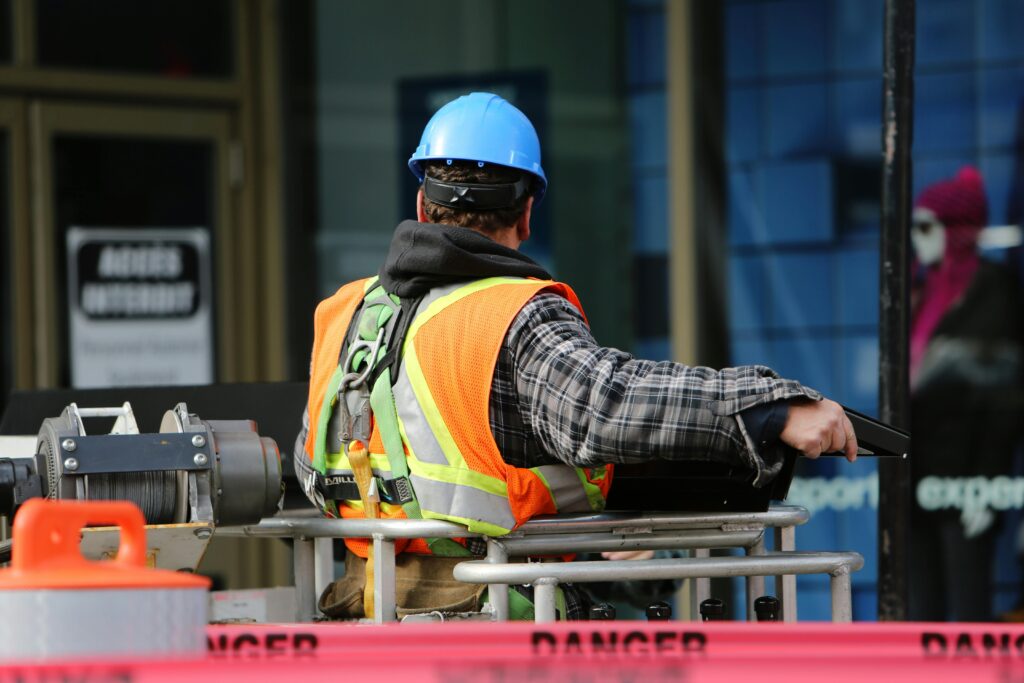
The Labour Day in Middle East is either a big deal or just another Wednesday. Some countries hand out paid days off like candy, others barely blink. But behind that simple “Public Holiday: Yes or No?” question, there’s a lot going on, it’s about who gets recognized, how work is valued, and what kind of break (if any) people actually get.
Across the Gulf, where the workforce stretches from top-floor execs to sun-soaked construction crews, Labour Day means very different things depending on who you ask. Policies vary, practices vary even more.
Some countries roll out official days off; others keep business as usual. It’s not random, it ties back to labour laws, economic priorities, and changing ideas about work across the region.
Here’s the 2025 lowdown on where you’re getting a day off, where you’re not on Labour Day in Middle East. And what it actually means whether you’re managing a team, planning a quick getaway, or just wondering if you’ll be sleeping in.
Labour Day in UAE: Recognized by Law, But Don’t Expect a Day Off
Labour Day in UAE is officially acknowledged. It’s mentioned in the books, but in real life? It’s business as usual for most people.
Under Federal Decree Law No. (33) of 2021, May 1 is technically a paid public holiday. However, it’s not part of the official UAE public holiday calendar that gets announced every year. And without a government announcement confirming it, companies aren’t required to give the day off.

In practice, that means most private companies and even many government offices operate normally. You might find the occasional employer granting a day off as a goodwill gesture, but legally, they don’t have to — and most don’t.
“Labour Day in the UAE shows the gap between what’s written and what’s lived,” says Samira A., an HR professional in Dubai. “Here, holidays are about national significance, and Labour Day just doesn’t carry the same cultural weight.”
For many expats, especially those coming from places where Labour Day is a huge deal, think marches, rallies, activism, it can feel strange to treat May 1 like any other workday.
But in the UAE, national holidays like National Day, Eid, and Commemoration Day take priority over global observances. Labour rights have been improving steadily (especially with reforms under Vision 2031), but Labour Day itself isn’t celebrated the way it is elsewhere.
TL;DR:
May 1 is recognized but not an official public holiday in the UAE. Don’t expect a day off — and if you get one, count yourself lucky.
Labour Day in Saudi Arabia: Business as Usual, But That Might Be Changing
Saudi Arabia does not officially recognize Labour Day as a public holiday. And in 2025, that’s still the case. Government offices, banks, and most private companies will operate as usual on May 1.
At first glance, that might seem surprising, especially considering how quickly the Kingdom has been transforming under Vision 2030, including modernizing its tourism and labour market and attracting global talent. But the roots of this omission are partly cultural and partly strategic.

Unlike other Gulf states that adopted Labour Day through international influence, Saudi Arabia has traditionally centered its public holidays around religion (Eid al-Fitr, Eid al-Adha, and National Day). So, Labour Day remains outside the official calendar.
“The exclusion of Labour Day isn’t an oversight,” says Rami H., a Jeddah-based economist. “It reflects Saudi Arabia’s historical approach to holidays—religious over secular, cultural over global.”
That said, there’s a slow shift in tone. In recent years, we’ve seen some private firms voluntarily acknowledge Labour Day and giving employees the day off or offering wellness programs on May 1. It’s not the norm yet, but the appetite for change is there.
TL;DR:
Don’t expect a public holiday. But keep an eye on progressive employers (especially multinationals) who might surprise you.
Labour Day in Bahrain: Official, Clear-Cut, and Generally Fair
Bahrain is one of the more consistent players in the region when it comes to Labour Day. May 1 is a recognized public holiday under Bahrain’s Labour Law, and both public and private sector employees are entitled to a paid day off.
What sets Bahrain apart is the relative transparency with which it’s implemented. The Labour Market Regulatory Authority (LMRA) and Civil Service Bureau tend to issue circulars ahead of time, and compliance is widely observed.

Even among migrant workers who often face the brunt of labour imbalances in the region, Bahrain’s Labour Day observance is considered meaningful. Some unions and NGOs even hold small awareness events and workshops on this day, which is rare elsewhere in the Gulf.
TL;DR:
It’s a day off, and you should get paid. If you’re working, ask for time-and-a-half or another off-day in writing.
Labour Day in Kuwait: Is a Go, But It’s Quietly Handled
Kuwait does recognize Labour Day as an official public holiday, and this applies to both citizens and expats. The Kuwaiti Labour Law (Law No. 6 of 2010) protects workers’ rights to public holidays with full pay, and May 1 is on the list.
That said, the tone is usually low-key as there’s no large-scale acknowledgment beyond an official government closure. The Ministry of Interior and other institutions issue holiday memos, but there’s rarely much public discourse around the day’s meaning.
“It’s acknowledged, yes but not necessarily celebrated,” says Nadim Y., a Kuwaiti labour.
Still, in sectors like oil and gas, where operations continue year-round, May 1 might be treated more as a rotational leave day. Workers are often compensated with extra pay or deferred time off.
TL;DR:
Expect a quiet but legal day off. Don’t expect cultural fanfare but do check your shift schedule.
Labour Day in Qatar: Recognized, But Don’t Expect a Day Off
Labour Day (May 1) is acknowledged in Qatar, but it’s not an official public holiday. Most employees — whether in the public or private sector — are expected to work as usual, unless an individual company chooses to grant the day off on their own.
Unlike countries where Labour Day is a major event filled with parades, speeches, and activism, Qatar keeps it extremely low-key. No official ceremonies, no government announcements — just another regular day for most.
“Labour Day in Qatar is more about silent recognition than celebration,” says a Doha-based HR consultant. “Companies might acknowledge it internally, but it’s not treated like a national event.”
Qatar’s overall approach prioritizes stability and gradual labour reforms over symbolic public observances. The country has made real improvements in workers’ rights — especially leading up to the FIFA World Cup — but May 1 doesn’t carry much weight on the public calendar.
TL;DR:
Labour Day is recognized in spirit, but you’ll most likely be working in Qatar unless your company decides otherwise.

A Country-by-Country Breakdown on Labour Day in Middle East
The ground reality of Labour Day in Middle East is very mixed. Some countries treat it as a full public holiday with a guaranteed day off, while others barely acknowledge it beyond a footnote.
Here’s a quick snapshot of what to expect across the region in 2025 and whether you should be prepping for a long weekend or business as usual.
| Country | Day Off? | Remember |
| UAE | No | Recognized on paper, but don’t bet on a day off. |
| Saudi Arabia | No | Labour Day? Not really a thing here. |
| Qatar | No | Acknowledged quietly, but no public holiday. |
| Kuwait | Yes | Official public holiday, enjoy that break! |
| Bahrain | Yes | Day off secured, whether you’re in an office or shop. |
| Oman | No | Not part of the official public holidays. |
| Jordan | Yes | A proper day off, it’s celebrated loud and clear. |
| Lebanon | Yes | Big deal here, expect speeches, activism, and a day off. |
| Egypt | Yes | Official holiday and usually a full-on celebration. |
| Iraq | Yes | Public holiday, but celebrations can vary by region. |
| Syria | Yes | Recognized and generally observed as a day off. |
| Palestine | Yes | Celebrated with marches and a well-earned day off. |
| Yemen | Yes | Technically recognized, but local conditions vary. |
In Short:
Gulf countries like UAE, Saudi Arabia, Qatar, and Oman usually don’t treat Labour Day as an official holiday as national holidays and religious festivals dominate their public calendars.
Levant and North African countries (Lebanon, Jordan, Egypt, etc.) often do treat Labour Day seriously, with formal celebrations and a guaranteed day off.
Final Thoughts:
Labour Day across the Middle East is anything but uniform. What’s a public holiday in one country is just another Wednesday in another. The legal frameworks are evolving, but so are cultural expectations and that matters.
If there’s a takeaway for workers in the region, it’s this: know your rights, but also know your context. Labour Day might not come with fireworks or marches, but the laws behind it tell us how each country balances business interests with workforce dignity.
And if you’re lucky enough to have the day off? Use it meaningfully; rest, and reflect.
Last Reviewed: 26 April 2025
Wondering if your next holiday is coming up?
Bookmark this post for when you need the facts, and share it with your friends because everyone should know if they’re getting the day off!
Follow Marhabein on social media!



